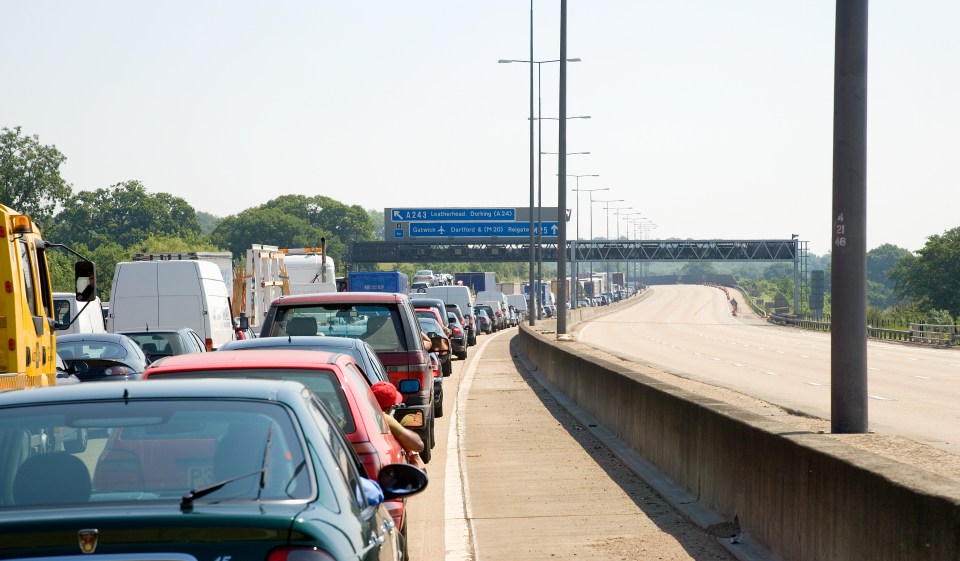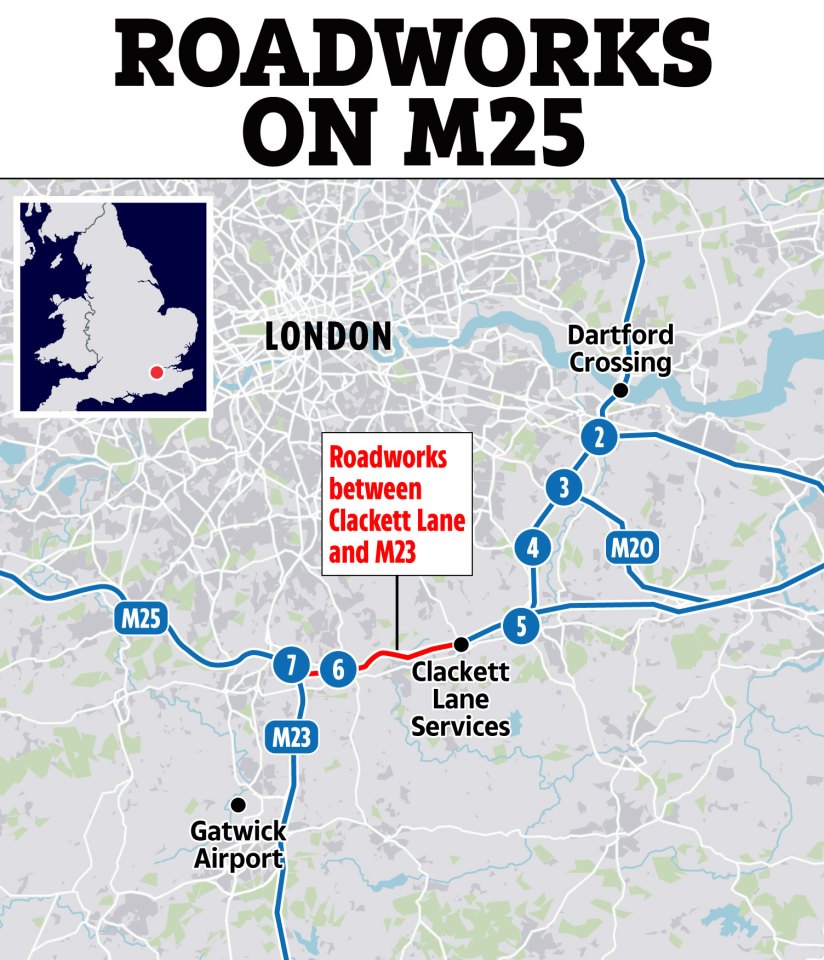RESIDENTS are furious over a “ridiculous” speed limit that has sparked chaos on Britain’s busiest motorway.
The restriction was brought in for road renovations in April but, despite them being completed, the limit might remain for another 12 weeks.
Drivers are fuming that the speed limit between junction 5 for Clacket Lane and 7 on the M25 has been reduced to 50mph.
Those subjected to the limit, many of which live in the Sevenoaks area of Kent, were told roadworks would finish on April 23.
Motorist Nancy Spearpoint, 55, told KentOnline the restrictions were “ridiculous” and that “everyone’s fed up with it”.
She raged: “I think they are pointless, causing absolute havoc, everyone I speak to says how disruptive it is and it’s making everyone’s lives hell and very stressful.”
Paul Alford, 62, agreed and thinks it’s “very frustrating” for drivers and even “a little bit dangerous.”
He added: “People get frustrated – if everybody goes 50mph it would flow nicely but people are going faster, slowing down for cameras, braking, and as far as I’m concerned you shouldn’t need to brake when you are on the motorway.”
The Lane closures and speed limits were implemented to build a new emergency area in Essex and Hertfordshire, between junction 23 and 27 of the M25.
Now this emergency stop area has been built, the lane closures have been removed but the restriction remained.
National Highways said this is so it can test out a new system called Stopped Vehicle Detection (SVD).
The new tech will be tested to the latest standards and require the speed limits to be in place for up to 12 more weeks.
Residents are up in arms about the length of the restriction, with Sydney Meopham slamming it as “excessive.”
He initially thought it was implemented because the M26 and the M25 were merging – when he found out the 50mph was for testing cameras he branded it “ridiculous.”
Kelly Bennett, 58, was fed-up and argued that the limit has a big knock-on effect.
She said she will be “very happy” when it’s all complete.
The cameras are said to signal “report obstructions” on the road to drivers if there has been an incident and close lanes and change speed limits.
National Highways warned that the camera tests might also include closures and diversions.
A National Highways spokesman said: “Dedicated monitoring of temporary CCTV and free recovery will remain in place.
“Once the system meets our rigorous performance specification, the speed will be increased to the national speed limit.
“It’s important to note that from this point onwards further calibration continues as we go through a process of continual improvement.”
The traffic enforcement agency insisted it was “working hard” to slash the 12-week testing period.
It said it will get car owners driving at the national speed limit as soon as it can.
“When we can remove the speed limit is determined by when the newly installed system is performing to our specification, rather than a strict timescale,” it added.
“This usually takes around 12 weeks; we are working hard to reduce this and will restore the national speed limit at the earliest opportunity.”
The Sun has reached out to National Highways for a comment.










